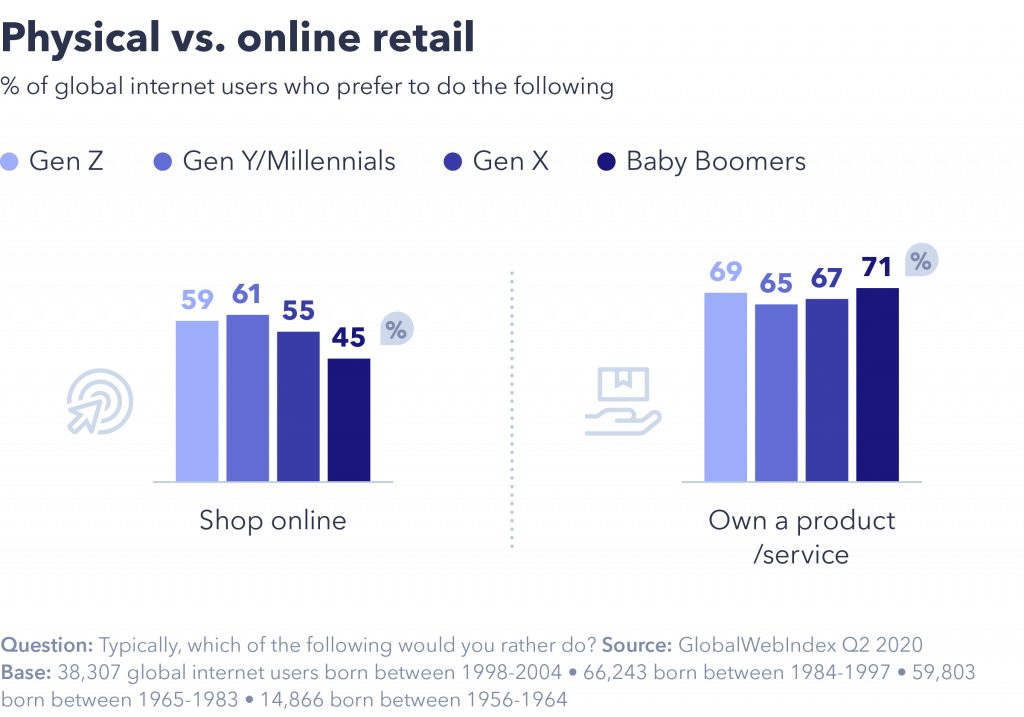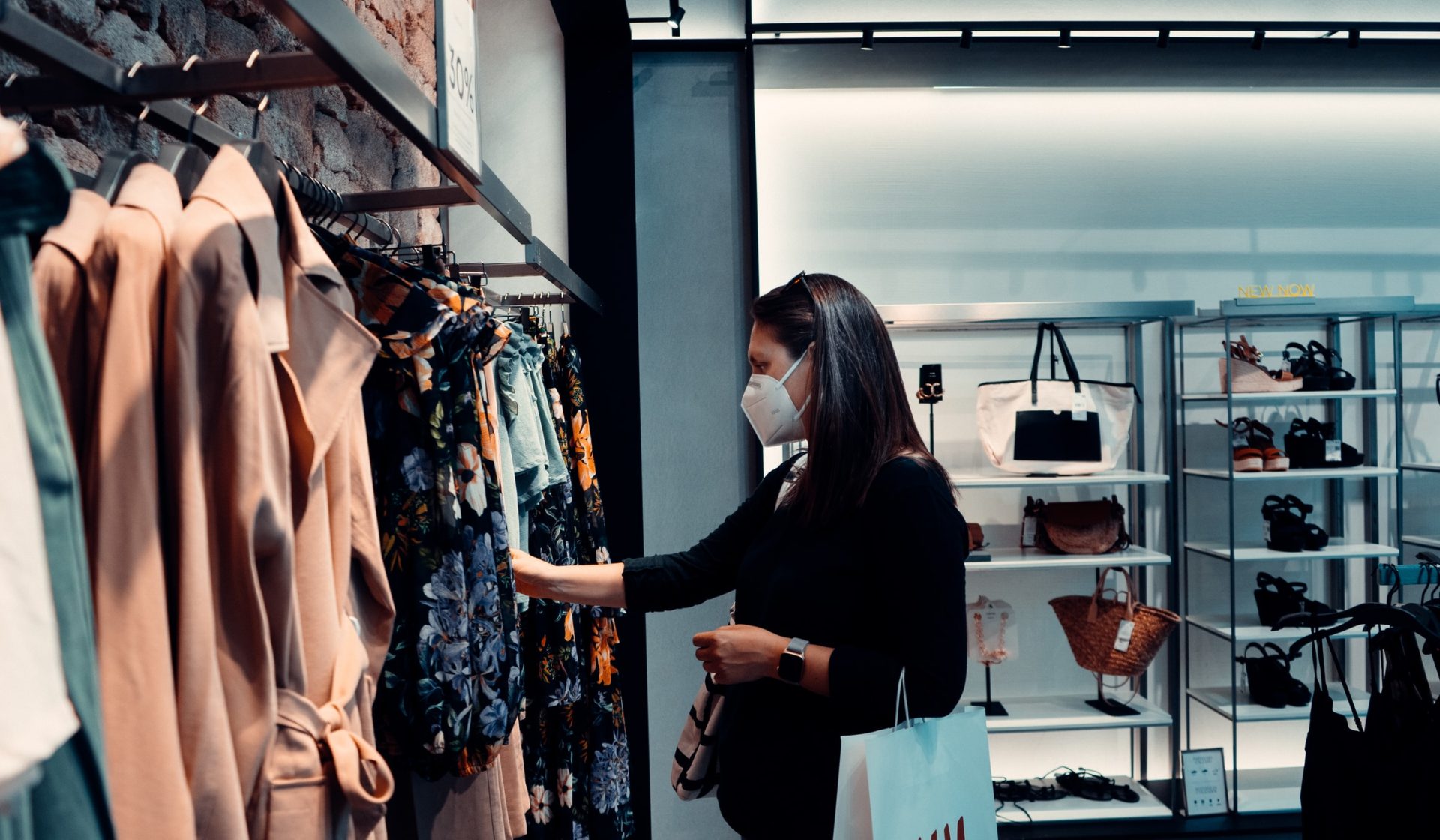Although Gen Z are digital natives, a new report suggests they also favour in-person shopping experiences more than you might expect.
With ever-improving technology at their disposal, it’s become a common assumption that young Gen Z consumers prefer digital retail experiences to physical ones, but a recent study from Global Web Index seems to suggest otherwise.

Despite being far more likely than older generations to order products online, Gen Z also favours shopping in-person almost as much as millennials. In fact, 41% of Gen Z expressed that they view both in equal favour, contradicting the idea that being tech-fluent directly correlates with a lack of desire to visit stores.
Instagram – the app that remains one of the most popular with Gen Z – has a clear emphasis on stylish aesthetics and appealing visuals, making offline retail environments ideal places to snap a few pictures to later curate and share on individual profiles. By shopping out in the real world, consumers can advertise and broadcast their spending habits to a public audience in a way that is simply impossible when ordering online.
Additionally, with social change a guiding force for young people’s brand choices, Gen Z has a great deal of interest in supporting local businesses and suppliers, particularly amidst the current pandemic.
‘The prevailing cultural narrative often pegs Gen Z as a digital generation that gets caught up by trends they see on social media,’ says Jeremy Baker, CTO at Retail Zipline. ‘The reality is they care about connections and community – we know this because they prefer to shop in situations where they can chat with their friends, engage with store associates, and feel confident that their purchase decisions are supporting businesses that treat employees well.’
Gen Z is also relatively frugal according to the report, and more likely than millennials to wait for items to go on sale before buying them at full price. More inclined to spend pragmatically than their older counterparts, they are also rejecting their current reputation as the ‘buy now, pay later’ generation. Less impulsive and more conscious, their spending habits are defined by a range of factors from environmental impact to treatment of employees.
What still remains to be seen is whether or not brands will take the information on board and recognise Gen Z as a unique group of consumers with a large amount of influence regarding post-Covid retail strategies. Their spending power does total over $140 billion, after all…















